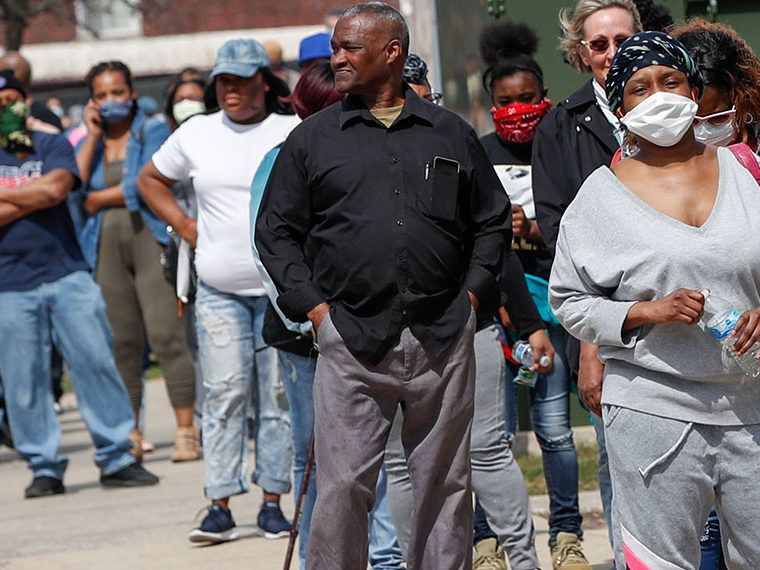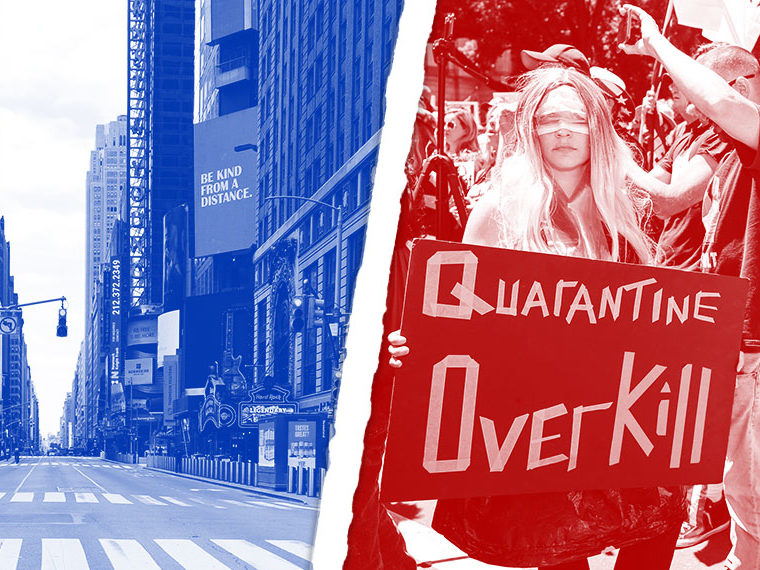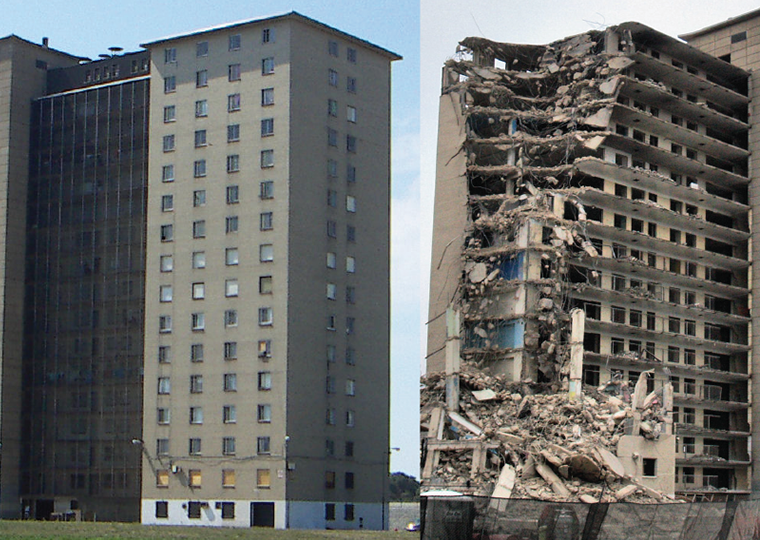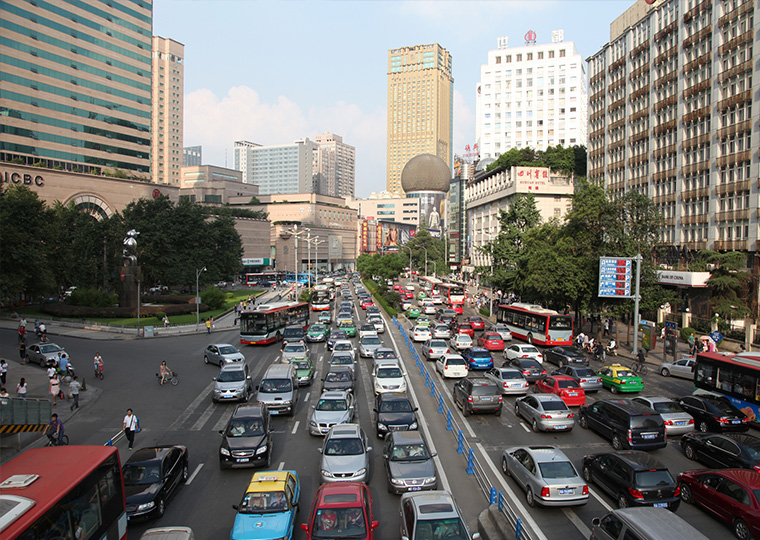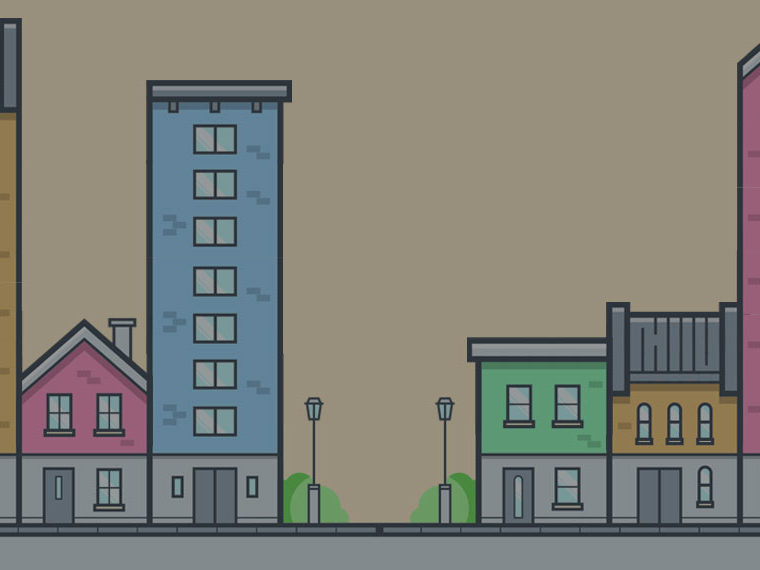Only after a Rush Limbaugh broadcast did evacuation rates diverge politically
America’s official agencies spend inordinate time battling politically motivated disinformation campaigns, including some with dangerous public repercussions. The recent wildfire devastation in Oregon found the FBI and other law enforcement pleading with residents to ignore unfounded rumors that far-left militant groups set the blazes, in part because the agencies were wasting precious time debunking the reports. Another popular fallacy paints coronavirus as a nonexistent or mild problem hyped by liberals to make President Trump look bad, rather than a devastating pandemic requiring community cooperation to squash.
Officials worry that such calculated efforts to fuel mistrust cause the public to dismiss critical advice in times of crises. But when it comes to potentially life-or-death situations, do such conspiracy theories actually lead Americans to deny science and defy the experts? A study in Science Advances finds they do.
UCLA Anderson’s Elisa Long, Keith Chen and Ryne Rohla, a Ph.D. student, used data from millions of smartphones to look for partisan differences in responses to hurricane advisories during major storms in 2016 and 2017. The study focuses on evacuations before Hurricane Irma, one of the strongest Atlantic hurricanes ever recorded, hit Florida on September 10, 2017. The U.S. National Oceanic and Atmospheric Administration’s National Hurricane Center put some 73% of Floridians under hurricane watches and warnings in the days ahead of landfall.
Opt In to the Review Monthly Email Update.
As the storm approached, conservative political commentator Rush Limbaugh — the most popular talk radio host in America — castigated official hurricane advisories as liberal propaganda aimed at promoting climate change science, a field he and his followers reject.“So there is a desire to advance this climate change agenda, and hurricanes are one of the fastest and best ways to do it. You can accomplish a lot just by creating fear and panic,” Limbaugh asserted at length on September 5, 2017, on his radio program, which airs from South Florida.“You don’t need a hurricane to hit anywhere. All you need is to create the fear and panic accompanied by talk that climate change is causing hurricanes to become more frequent and bigger and more dangerous, and you create the panic, and it’s mission accomplished, agenda advanced.”
As Florida ordered some 6.5 million residents to evacuate because of Hurricane Irma, mainstream news outlets reported Limbaugh’s skepticism of official forecasts well beyond those listeners.
The study by Long, Chen and Rohla finds Hurricane Irma evacuation rates were significantly lower among Floridians that likely voted for President Trump than rates for close neighbors that likely voted for Hillary Clinton. Facing the same threat, 34% of the Trump-supporting group evacuated, compared to 45% of Clinton supporters. (Two days after his September 5 broadcast, Limbaugh subtly let listeners know that he, too, would evacuate.)
Daily partisan differences in evacuation rates ranged from 10 to 15 percentage points, with the biggest divides occurring on September 6 and 7. The peak difference in overall evacuations coincided with the peak in Google searches for “Rush Limbaugh hurricane,” the study finds.
The partisan differences in hurricane evacuation rates emerged only after Limbaugh’s skepticism of the forecasts surfaced, the study finds. In the two days prior to his September 5 broadcast, likely Trump and Clinton supporters evacuated at about the same rates. Similarly, evacuation rates were not correlated to political affiliation during previous threats from major hurricanes, according to the results.
The findings suggest that the politicizing of science is profoundly influencing public behavior, even when the stakes are very high.
The Limbaugh Effect
The size and consistency of the evacuation gap following Limbaugh’s shows surprised the researchers. “We’ve known for a while that climate change and other scientific-based findings are very partisan,” Long said in an interview. But the consequences of denying the science — of personally suffering if one’s skepticism proves unfounded — probably seems very low to skeptics. “I think many people believe that even if climate change is happening, it’s ‘not something I would face in my lifetime,’” she said.
“What was so fascinating to us is, these decisions to not evacuate the wildfires or not evacuate hurricanes are happening right now,” she said. “People are putting lives at stake.”
The hurricane study found a consistent 10–11 percentage point evacuation gap difference based on politics, including scenarios run as checks against other factors that could lead more Republicans to stay home.
Did Democrats evacuate more often because they lived in homes facing bigger threats from hurricanes? No, the study finds. Even when Democrats and Republicans lived less than two football fields away from each other, the Democrats were much likelier to evacuate.
Were the liberals in the study richer, better educated or members of some other demographic that some might assume would influence whether they evacuated? No, the study finds. Census data matched to each smartphone helped control for demographic influences.
Tracking 2.7 Million Smartphones
The research taps anonymized smartphone data over three-week periods around hurricanes Irma, Matthew and Harvey. Hurricane Matthew threatened Florida in October 2016 and became the deadliest Atlantic hurricane since 2005. Hurricane Harvey caused catastrophic damage when it hit Texas and Louisiana in late August 2017, a couple of weeks before Irma landed in Florida.
A smartphone routinely pings cell phone towers about every 10 minutes, which pegs the device’s location. The study tracked each smartphone in Florida at the time, and all those in Texas residing within 300 kilometers of the coast.
Looking at where the devices spent nights, the researchers constructed likely political affiliations and demographics for device owners. To categorize device owners as likely Trump or Clinton voters, the researchers drew on precinct level voting data from the 2016 presidential election. They noted the precise voter split — 59% for Trump and 41% for Clinton, for example — in each precinct.
The study matches every watch and warning from the National Hurricane Center to smartphones in the affected areas. (Evacuation orders are locally issued and not directly considered in the analysis.)
Researchers tracked these devices beginning four days before a relative alert until four days after the advisories ended. Smartphone users that spend more than 24 hours at locations at least 100 meters away from home during this period are pegged as evacuees. The method is intended to capture early evacuees, and to include evacuations both locally to shelters and to places farther away.
More Republicans, Fewer Evacuees
The largest evacuation rates occurred in the precinct that most heavily voted for Clinton, according to the findings. As a precinct’s percent of Trump voters rose, the likelihood that its residents evacuated following hurricane alerts fell, the study finds.
Evacuation rate discrepancies remain steady in comparisons beyond precincts, a finding researchers consider strong evidence that political differences are the cause.
The researchers aggregated the smartphone data to geohash levels ranging from covering half the state of Florida (geohash-2) to a 0.15-kilometer square (geohash-7), close enough to make specific buildings identifiable. Long describes the progression from geohash-2 down to 5, 6, 7 as zooming in on an aerial view of an imaginary grid over the state.
The researchers find the same 10–12 percentage point gap in Democrat-Republican evacuation rates “regardless of what level of zooming we do,” Long said.
At geohash-7, for example, they found households in Republican precincts much likelier to stay home than the residents in Democratic precincts, even when those opposing precincts were right next door.
If the evacuation differences were caused by something other than political differences, Long says, “we would have expected that 10–12 percentage point difference to go away.” Differences in, say, rural versus urban attitudes might create big differences in evacuation rates on a broad level. But that shouldn’t be a factor for neighbors.
The findings suggest that politicizing natural disasters can have dangerous public repercussions beyond societal divisions that the tactics sow. In an era when politicians and news media regularly dismiss expert advice, using information and data to prevent loss of life from threats like wildfires and coronavirus may be less effective.
Meanwhile, Limbaugh continues to criticize official hurricane advisories, as well as information from experts on coronavirus, as tools of liberals to discredit President Trump.
Featured Faculty
-
Elisa Long
Associate Professor of Decisions, Operations, and Technology Management
-
M. Keith Chen
Professor of Economics
About the Research
Long, E.F., Chen, M.K., & Rohla, R. (2020). Political storms: Emergent partisan skepticism of hurricane risks. Science Advances, 6(37), eabb7906
